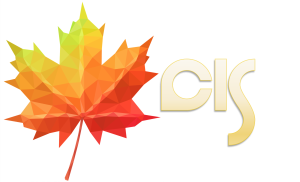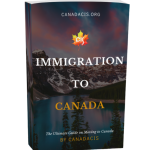Important Tips on How to Work and Study in Canada
Home » Blog » Study in Canada » Study and Work in Canada: Student Immigration Guide
As an international student studying in Canada, you will be able to take full advantage of a variety of opportunities. One notable opportunity is the ability to gain important work experience while earning money during your time studying in Canada, which can be achievable through part-time student jobs.
While you must provide proof that you will be able to pay for your tuition and living costs before you arrive, there are a variety of ways in which foreign students may study and work in Canada at the same time.
Most international Canadian students are allowed to work up to 20 hours a week without a work visa. Working while studying helps you connect with new people and provides support for yourself, all while laying the groundwork for future success.
For a more in-depth guide and important tips on how to study and work in Canada, make sure to read until the end of this article.
Table of Contents
👩🎓 How to Find Jobs in Canada for International Students
If you are eligible to work in Canada, you may be questioning how to find work. As a Canadian study permit holder, you may be permitted to work on or off-campus without obtaining a working visa. Although, there are some important criteria you will need to take note of before seeking employment. Which is why we’re here to provide you with 4 achievable steps to finding jobs in Canada as an international student:
When you start your job search in Canada, the first thing you need to do is update your resume to meet Canadian standards. Here’s how:
- Create a Canadian-Style Resume: In Canada, resumes are typically structured with specific sections, including a summary, skills, work experience, education, and references. Tailor your resume to this format.
- Include a Cover Letter: When applying for jobs in Canada, it’s crucial to include a cover letter with your CV. A cover letter provides you with an opportunity to introduce yourself, explain your visa status, and highlight why you’re the best candidate for the job.
- Emphasize Relevant Experience: Be sure to emphasize any relevant work experience, internships, or skills that make you a strong candidate for the position you’re applying for.
- Proofread and Edit: Carefully proofread and edit your resume and cover letter to ensure they are error-free and professionally presented.
When applying for jobs, include a cover letter with your CV. A cover letter is usually an important addition to job applications. Your cover letter should be a chance to discuss your visa status and why you are the best qualified for the job.
Most wonderful part about searching for a job while you’re still in school is the networking possibilities that come with it. Attending all of the networking events in school is important. Everyone you meet outside of school should continue to network with you. Explain your objectives and background to individuals and they will have a better understanding of what kind of job you’re searching for.
Here’s how you can enhance your networking abilities:
- Attend Networking Events: Take advantage of networking events and opportunities within your school. Attend career fairs, workshops, and seminars where you can connect with potential employers and fellow students.
- Build Relationships: Networking is not just about collecting business cards; it’s about building genuine relationships. Engage in conversations, ask questions, and show a sincere interest in others.
- Online Networking: Extend your network beyond your campus. Use professional networking platforms like LinkedIn to connect with professionals in your field. Join relevant groups and participate in discussions.
- Share Your Goals: When you meet people, be clear about your career objectives and background. Sharing your goals and aspirations helps others understand what type of job you’re seeking.
- Follow Up: After networking events or meetings, make sure to follow up with your new contacts. Send a thank-you email and express your interest in staying connected.
The Internet offers many different career options across various industries, and it is the ideal location to begin your employment search. To explore employment opportunities in a specific city in Canada, people often use major employment sites, such as LinkedIn, Indeed, Monster, and SimplyHired.
Here’s how to make the most of these resources:
- Explore Diverse Opportunities: The internet provides a vast array of career options across different industries. This makes it an ideal starting point for your job search in Canada.
- Utilize Major Job Search Websites: To find employment opportunities in specific Canadian cities, consider using popular job search platforms such as LinkedIn, Indeed, Monster, and SimplyHired. These websites host a multitude of job postings from various employers.
- Set Up Job Alerts: Many job search websites allow you to set up job alerts based on your preferences. This means you’ll receive notifications when new job postings that match your criteria become available.
- Customize Your Search: Use filters and keywords to narrow down your search. You can refine your search by industry, location, job type, and experience level to find positions that align with your qualifications and interests.
- Create an Online Profile: If you’re not already on LinkedIn, consider creating a professional profile. This platform is widely used for networking and job searching in Canada.
- Apply Proactively: When you come across job listings that align with your goals, submit your application promptly. Ensure your resume and cover letter are tailored to the specific job requirements.
- Stay Informed: Keep an eye on industry news and trends through online resources and professional networks. Staying informed can help you identify emerging job opportunities.
People often begin their career by working on projects within their area of interest. It’s a good idea to check out a business whose internship and volunteer opportunities you can take advantage of. Employers are attracted to job candidates who have volunteer and internship experience.
Here’s how to make the most of these opportunities:
- Explore Your Interests: Start by identifying your areas of interest and the skills you want to develop. Look for organizations or businesses that align with your career goals.
- Seek Internship Opportunities: Research companies and organizations that offer internship programs in your field of study. Internships provide hands-on experience and a chance to apply your knowledge in real-world situations.
- Consider Volunteering: Volunteering can also be a valuable way to gain experience and expand your network. Look for volunteer positions related to your career aspirations.
- Highlight Relevant Skills: During your internships or volunteer work, focus on developing and showcasing skills that are in demand in your industry. This will make you more attractive to potential employers.
- Network: While interning or volunteering, build relationships with colleagues and supervisors. Networking can lead to job referrals and recommendations.
- Update Your Resume: As you accumulate internship and volunteer experiences, be sure to update your resume to reflect these activities. Emphasize the skills and accomplishments you gained during these opportunities.
- Be Persistent: Job candidates with internship and volunteer experience often stand out to employers. Be persistent in your search for these opportunities, as they can be a stepping stone to your future career.
💼 Top 5 Well-Paid Part-Time Jobs in Canada for Students
If you’re an international student in Canada, you have the chance to work part-time while you study, for up to 20 hours a week. This can help you earn extra money and gain work experience. Let’s take a closer look at some great part-time job options for students in Canada:
💼 In-Demand Part-Time Job #1: 👩🏼💻 Freelancer
Average Salary: $25 per hour
Freelancing is a flexible option for students who like working from home and setting their own schedules. You can be a freelance writer, web designer, copywriter, graphic designer, or translator. There are various freelance projects available for different skills.
| PROS | CONS |
|---|---|
| Flexibility: Freelancing allows you to work from home and set your own schedule. | Income Variability: Freelance income can be unpredictable, with busy and slow periods. |
| Variety: There's a wide range of freelance opportunities available in fields like writing, web design, and more. | Self-Employment Taxes: As a freelancer, you may be responsible for managing your own taxes. |
| Skill Development: Freelancing can help you hone your skills and gain experience in your chosen field. | Client Dependence: Your income depends on finding and retaining clients, which can be competitive. |
💼 In-Demand Part-Time Job #2: 🍹 Bartender/Server
Average Salary: $11 per hour (not including tips)
Becoming a bartender or server is a good choice if you enjoy working in the service industry and can work evenings and weekends. Most shifts in bars and restaurants are during these times, and you can earn both an hourly wage and tips.
PROS
- Tips: Earnings can increase significantly with tips from patrons.
- People Skills: Working in the service industry can improve your customer service and communication skills.
- Teamwork: You’ll often collaborate closely with colleagues in a fast-paced environment.
CONS
- Irregular Hours: Evening and weekend shifts are common, which may not suit everyone’s schedule.
- Physical Demands: Serving or bartending can be physically demanding with long hours on your feet.
- Stressful Situations: Dealing with difficult customers or busy rushes can be stressful.
💼 In-Demand Part-Time Job #3: 🚗 Ride-Hailing Drivers
Average Salary: $14 to $25 per hour
If you like driving and want to explore Canada, you can become a ride-hailing driver. This job offers flexibility, as you can choose when to work. All you need is a driver’s license, access to a car, and a smartphone. Your earnings depend on how much you drive.
- Flexibility: You have control over your working hours, making it easy to balance work with studies.
- Independence: As a ride-hailing driver, you’re your own boss and manage your vehicle.
- Exploration: You get to explore different parts of Canada while earning money.
- Vehicle Expenses: You’re responsible for vehicle maintenance, fuel, and insurance costs.
- Income Variability: Earnings can fluctuate based on factors like demand and location.
- Safety Concerns: Dealing with passengers, especially during late-night shifts, may pose safety considerations.
💼 In-Demand Part-Time Job #4: 📚 Tutor
Average Salary: $15 to $20 per hour
Tutoring is a good part-time job if you’re knowledgeable in a particular subject and patient enough to help others learn. You can focus on a specific subject or grade level, from elementary to college. This job lets you share your knowledge and help fellow students succeed.
| PROS | CONS |
|---|---|
| Expertise Sharing: You can share your knowledge and help others excel in their studies. | Time-Consuming: Preparing lessons and grading assignments can be time-intensive. |
| Flexible Specialization: You can choose to tutor in subjects that align with your expertise. | Variable Demand: Tutoring demand may fluctuate depending on the academic calendar. |
| Positive Impact: Tutoring can be personally rewarding as you witness students' progress. | Patience Required: Teaching and explaining concepts can be challenging and require patience. |
💼 In-Demand Part-Time Job #5: 👨🏫 Teaching Assistants
Average Salary: $15 to $16 per hour
Many professors and instructors in Canada hire teaching assistants (TAs) to help with tasks like tutoring, lesson planning, and grading. You don’t always need a lot of experience; sometimes, expertise in the subject or good communication and teamwork skills are more important.
PROS
- Work Experience: TAs gain valuable experience in teaching and academic support.
- Networking: You’ll have the opportunity to connect with professors and peers.
- Potential for Career Advancement: TA experience can open doors to future teaching or research roles.
CONS
- Workload: Balancing TA responsibilities with coursework can be demanding.
- Varied Expectations: TA roles can vary widely between courses and professors.
- Limited Autonomy: TAs often work under the guidance of a professor or instructor.
🏫 On-Campus Job Requirements
Foreign students may be allowed to work on campus without acquiring a work permit while finishing their studies provided they meet the following requirements:
Requirement #1: Valid Study Permit
To work on campus, you must possess a valid study permit. The study permit is a document issued by the Canadian government that allows foreign students to study in Canada. It’s essential to ensure that your study permit remains valid throughout your academic program.
Requirement #2: Full-Time Student Status
To be eligible for on-campus employment, you must be a full-time student at a recognized post-secondary public institution in Canada. This typically includes universities and colleges. Being a full-time student means that you are enrolled in a program of study that meets the institution’s criteria for full-time enrollment.
Requirement #3: Social Insurance Number (SIN)
You must have a Social Insurance Number (SIN) to legally work in Canada. A SIN is a unique number issued by the government that allows you to work and receive benefits in the country. It is essential to apply for a SIN as soon as you arrive in Canada and before you begin your on-campus job
🏢 Off-Campus Job Requirements
Foreign Students are able to work off-campus without acquiring a work permit while finishing their studies provided they meet the following requirements:
You have a valid study permit
You are a full-time student at a post-secondary public school (college or university)
and work records. Some immigration programs may require additional documents like police clearance certificates or medical exams, so stay organized.
Your course is academic, vocational, or professional, lasts at least six months, and results in a degree, diploma, or certificate upon successful completion.
Your workload should not exceed 20 hours per week while you are not in class, and it should be increased to only 40 hours per week during class breaks (for example, winter and summer holidays or spring break).
Co-op and internship requirements may be a part of certain study programs. In this case, you will need a work permit to be able to work and study in Canada.
🌆 The Best Cities in Canada to Study and Work in Canada
A tiny city located in the province of Ontario in Canada is called Ottawa. The top choice for students is almost always a city due to its vibrant and enjoyable atmosphere, the cost of living, and the benefits that education provides. The majority of foreign students in Canada came up with the idea of Ottawa as the greatest city to study in Canada. This shows that the city provides a wide variety of options for international students.
🔒 Security: Ottawa has a low crime rate. Over the last several years, there has been a little increase in crime.
💼 Job Opportunities: When it comes to employment in Ottawa, the city often seeks foreigners. Due to this, more individuals choose to settle in Ottawa each year. As the population grows in the city, it is difficult to find employment for all of those individuals arriving each year. Despite rising population levels, Ottawa’s employment rate has remained steady.
🏡 Cost of Living: The fact that you can receive a good salary in Ottawa is one of the greatest things about living here. Among the cities in Canada, it has the highest income rate. Since you’re moving to the city, you can be certain to have the money to cover your living expenses after you find a job in Ottawa.
Quebec is among the places where the French language is frequently spoken in Canada. Therefore, it will be difficult for only English-speaking students to adapt to life in Quebec. Only 1.5% of the population in Quebec speak English.
It is not an undesired city in Canada, but that doesn’t mean it’s the most desired one either. Travelers from across the globe choose Quebec City their favorite place to visit.
The city’s numerous festivals and festivities make it a popular destination for people. In the city, winter is celebrated with its ice castle and sculptures, particularly during the holiday season. Students may also enjoy skiing competitions.
🔒 Security: According to records, Quebec is one of the safest cities in Canada. There is no political or racial violence in the city, therefore it is a safe place to live.
💼 Job Opportunities: Quebec City is known for their low unemployment rates. From time to time, new possibilities are presented to the city. Students will be able to find employment and get the most value from Quebec.
Quebec’s unemployment was 4.9 percent in 2017. It has lately fallen to 3.9%, and continues to do so. So, you have no need to worry about finding employment in Quebec.
🏡 Cost of Living: Great value education, at the lowest feasible price, is available in Quebec. Compared to other places, life in Quebec City is both cheap and comfortable. Quebec is much less expensive than any other city in Canada when it comes to living expenses, education prices, and in comparison to other Canadian cities.
The most expensive place in Canada is Vancouver, making international students believe it is unfriendly. However, surprisingly Vancouver has been ranked among the best cities for students in the world. The city includes plenty of outdoor activities such as hiking, skiing, and more. Many students in other countries look forward to these adventures while they are abroad, making the number of students who’ve applied to study in Vancouver on the rise.
🔒 Security: Vancouver is a fairly safe city for students. The vast majority of those who reside in the city still stay alert. Despite the rarity of severe crime, students should still remain cautious of their surroundings. To be independent, one must take care of their own things and assume responsibilities.
💼 Job Opportunities: It’s possible to find lots of employment opportunities for the Vancouver university students. Many workers who live in Vancouver think that working and having a personal life should be balanced. You won’t have to go to much trouble to study and work comfortably in Vancouver. You may even discover creative career alternatives that will enable you to further your career.
🏡 Cost of Living: Vancouver is one of Canada’s most expensive cities. Despite that, its nature, possibilities, and excellent education outweigh its one shortcoming.
Montreal is highly multicultural. This is mostly due to the huge number of excellent universities in the city. The education level is excellent and there are a number of well-known universities that make foreign students want to come. There are two distinct languages spoken in the city of Montreal. The main language is mostly used among residents of the city.
🔒 Security: Don’t sweat, if you’re searching for a nice place to reside, Montreal should definitely be on your list. Among the 20 safest nations in the world, the city ranks number two. If safety is your top priority When it comes to safety, Montreal should be perfect for you.
💼 Job Opportunities: Due to being the home of two different kinds of speakers in Montreal, it splits up job opportunities. It’s common for French speakers to have greater employment possibilities in Montreal. As for English speakers, there are available employment opportunities. However, the choices are few.
🏡 Cost of Living: The City of Montreal is an excellent location for French-speaking international students, since it is one of the most affordable cities in Canada. In terms of overall value, this location boasts the lowest rentals in Canada.
Another one of the expensive countries in Toronto. It is the capital of the city and contains 17 percent of foreign students. It is the 34th best city in the QS ratings. The city offers foreign students a good education and job opportunities.
🔒 Security: The city is rated safe. There are no reports of crimes, only frauds and thievery.
💼 Job Opportunities: In recent years, there has been a decrease in the rate of employment. Students who have graduated, on the other hand, are in high demand for employment.
🏡 Cost of Living: Toronto is one of the most populated cities in Canada, with a population of over one million people. As a result, the cost of living and housing prices continue to rise. However, the average salary is high, which makes housing affordable for residents.
📢 Advice for Students Interested in Working in Canada
As an international student, you might be interested in working while you study. If you wish to do so, we’ve provided you with great advice on what you should and should not do when it comes to working in Canada as a student. Read this list to help you with your job search and application.
✔️ DOs
- ✔️ Use strong words and action verbs in your application letter and resume.
- ✔️ Be extremely precise when describing events or characteristics in Canada.
- ✔️ Include references on your CV; this is particularly critical for foreigners.
- ✔️ Always ask if you are unsure about the question.
- ✔️ Provide examples to prove your accomplishments.
- ✔️ Engage and ask questions in an interview.
❌ DON'Ts
- ❌ Stand until you are invited to a Canadian application interview.
- ❌ State anything other than the truth on your resume, your future employer will always discover the truth.
- ❌ Make negative remarks about previous employers.
- ❌ Go over the top. Always maintain your composure and focus on the facts.
❓ Commonly Asked Questions
Studying in Canada is one of the more inexpensive ways to learn abroad. Tuition may cost you between $20,000 and $30,000 CAD each year. An average range is used and will vary depending on your program and school.
You may be able to work in Canada while studying if the conditions of your study permit allow you to work on or off campus. Additionally, you must fulfill other requirements. Keep in mind that you are only allowed to work in Canada once you start your study program and not before you begin.
International students may work up to 20 hours per week while in school and 40 hours per week on vacation. The average salary students can make can range from $ 8 to $10 CAD per hour.
According to Statistics Canada, an average undergraduate degree currently costs $29,714 CAD per year, while a postgraduate program may cost up to$17,744 CAD per year. Each year, an MBA will cost about $27,397 CAD. Undergraduate programs like dentistry, medicine, and law will need you to pay a larger tuition price, while programs in social sciences, humanities, and education will be less expensive.
Additionally, you should factor in university application costs, which usually begin at $100 CAD and may reach $500 CAD. Although keep in mind that not all institutions charge them.
Canada has a well-established position among the world’s leading study destinations. The most popular Canadian provinces for international students are Ontario, British Columbia and Quebec, which between them are home to many of the top universities in Canada.
With that being said, we hope to have answered all your questions about studying and working in Canada!
Bear in mind that you are not alone; as Canadian educational immigration experts, we are prepared to assist you in resolving all your questions and guiding you through each stage of your immigration procedure for a faster and more convenient journey to Canada!






